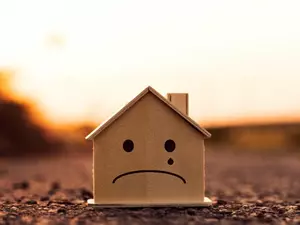 Distressed Properties Beginning To Become More Common, Again
Distressed Properties Beginning To Become More Common, Again
More than likely, we’re going to see an increase in the number of distressed properties nationwide. In 2008, we had the housing bubble burst. There were a ton of distressed properties, and then the number of distressed properties decreased. Because economics moves in cycles, we are at a point where we’ll start to see more distressed properties again. We’ve got high-interest rates, low consumer confidence, and massive inflation.
With everything costing more, it stands to reason that people are not going to be able to afford their mortgage payments rather than in an environment where we had real wage growth, high employment, and low inflation. In those situations, you have less distressed properties. Right now it looks like we’re turning into a down cycle. We track the number of active foreclosure cases, the number of foreclosure cases filed, and short sale listings, which all seem to be increasing. Bankruptcy filings are another thing we look at.
There’s been a slight increase in bankruptcy filings There has also been an increase in the number of foreclosures for homes purchased in September 2020. Homeowners made five months of payments and then stopped paying in early 2021, which probably has something to do with the pandemic and the economy.
The Consequences Of Reduced Or Delayed Mortgage Payments
We have seen a number of homeowners who are having trouble catching up with missed mortgage payments due to issues caused by mortgage forbearance plans.
Rather than the homeowner asking the bank for mortgage forbearance, which is where your lender allows you to pay a lower monthly amount or pause your payments temporarily, sometimes the lender calls homeowners, unsolicited. The banks would ask, “Do you want a forbearance?” And a lot of people say yes. These people think they are getting a six-month break in mortgage payments. Then six months later, the lender tells these homeowners that they want the full six months of escrow taxes. Homeowners don’t understand what they are getting into when they get a mortgage forbearance plan.
What’s more, we are just starting to see the fallout from the effects of COVID-19 shutdowns. In Illinois, and in other states, there was a rent moratorium. While eviction notices could be filed as of June 25, 2021, in Illinois enforcement of such evictions was delayed until after October 3, 2021. As of the end of 2022, we are beginning to see an increase in homeowners having to return to making mortgage payments and face the unanticipated consequences of mortgage forbearance plans. We at Citizens Law Group, LTD expect to see the fallout of what has happened in the past few years around fall in 2023.
The Price Tag Of Keeping Your Home
When deciding whether you should save or sell your home, we look at your income and then at your monthly expenses. Then, we ask you if you expect there to be a change in your financial situation.
In the beginning, everyone wants to save their homes, but most people don’t want to accept what the actual cost of saving your home is. When a homeowner is behind $100,000 on their mortgage and they want to save their house, they’re not going to get a loan modification.
For example, consider that you have an FHA loan. If it’s past the time frame where you can get a modification, or if you’ve already had multiple modifications and the lender doesn’t want to work with you on another one, you’re going to be in a difficult position.
It’s difficult to tell a client that they need to pay their regular $3,000 mortgage payment as well as $2,000 in a bankruptcy, which is $5,000 plus living expenses. After the distressed property owner digests such news, we return to review their financials and what payment might look like. If they can’t afford the payment, then the questions are, “Is there anything you can do to get more income? Is there a family contribution? Can you pick up a second job? Such a conversation allows the homeowner to know what they are getting into and make some hard decisions.
For more information on Number Of Distressed Properties Across IL, an initial consultation is your next best step. Get the information and legal answers you are seeking by calling (312) 313-1033 today.

Find Out How We Can Help!Call Now! (312) 313-1033

 Distressed Properties Beginning To Become More Common, Again
Distressed Properties Beginning To Become More Common, Again